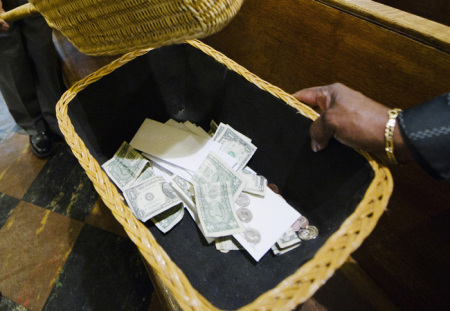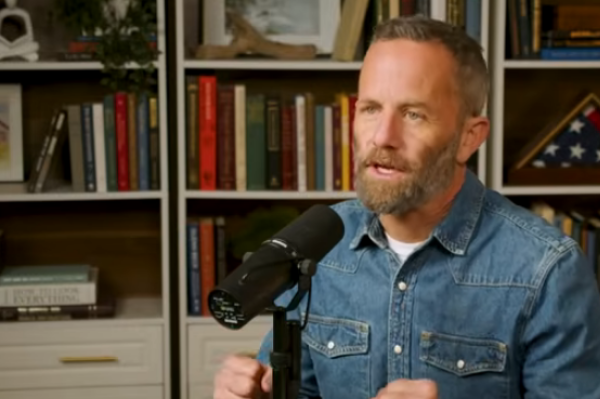The rich are getting richer and the poor are getting poorer? Wrong!

In a recent newsletter for my College of Business at Concordia University Chicago, I made a bold claim: that global extreme poverty has been reduced to 9%, and that a majority of the world’s population is now in the middle class. These claims matter for Christians, not just because we are commanded to the flourishing of people everywhere, but also because many of these gains can be attributed to institutions – like trustworthy courts and stable property rights – that arise from the Judeo-Christian affirmation of the Imago Dei. I hope that the faculty and students at my Christian institution will embrace this fully - that every single person is made in the image of God and has, to borrow a phrase, certain unalienable rights endowed to them by their Creator. No lesser claim will ultimately restrain the avarice of the powerful against the apparently insignificant claim of some obscure individual to their house, their job, or their small business.
Christian business people ought to see their activities as contributing to human flourishing. After all, emerging from abject poverty can mean the difference between kids who go to school and kids who have to do back-breaking work to help keep their families afloat. It can mean the difference between a life-saving antibiotic and dying before the age of five from diseases that you or I could address with a simple visit to the doctor. And while there are all sorts of wonderful things that we can do through charity and aid, this is not the way that countries develop robust enough economies to emerge from poverty. Instead, the global poor are just as interested in being economically independent as you and I are, as we see in the excellent documentary Poverty, Inc.That requires stable political and legal institutions that can support business activity. So, if this is my argument, what evidence can I provide to support these claims?
According to the World Bank, “abject poverty” is defined as living on less than $1.90 a day. 200 years ago, this described 99.9% of humanity. Today, it’s 9%, as you can see from the World Bank’s graph pictured here. The United Nations reports similar numbers on their global poverty goals. Thirty years ago, this number was at 40%, meaning that some of the most rapid progress has been made just in the last few decades. And what about the claim about the middle class? Brookings reports that over half the world now falls into the global middle class, meaning that families have discretionary income to spend on things that go beyond basic needs, and that they have enough wealth to weather economic shocks. Of course, we don’t mean by this that half the people in the world have the kind of wealth that a middle-class American has; after all, the United States has the highest GDP in the world, and is in the top 10 for GDP per capita as well. What we do mean is that not only is quality of life going up for regular people almost everywhere, but also the political instability and genuine injustice caused by a sharp division between very rich and very poor is being ameliorated by a world-historical shift of population into a stable middle class. The gap between the richest person and the poorest person in a society doesn’t matter as much for political stability as the distribution of wealth throughout the society. This news about the growth of the middle class is especially good for anyone who’s read Plato’s Republic or Aristotle’s Politics, in which the dangers of the division of society into two warring economic factions was considered one of the fundamental questions of political philosophy.
The facts I’m conveying here are so shocking in their sheer magnitude and historical rapidity that they’re hard to really take in. They may even seem unbelievable, and of course, no one’s arguing that we don’t have a lot further to go in alleviating poverty and building real wealth for those impoverished all over the world. But I encourage all of you to visit Gapminder.org, the invention of the late, great Hans Rosling of Factfulnessfame, and take the “Worldview Upgrade” quiz for more good news. If my claims seemed too good to be true, you’re not alone. When Our World in Data asked the following question,“In the last 20 years, the proportion of the world population living in extreme poverty has decreased, increased, or remained the same?” the majority of respondents assumed that global poverty is getting worse. One possible explanation for this is the fight or flight response of our pounding amygdalas, which tempts news organizations to emphasize only those stories that inspire a sense of fear or anger in their audience. It’s hard to blame them; how interesting would it be to look at the news every single day just to read “Another 136,000 People Emerge from Abject Poverty Again Today!”
While trade has always existed, it has been far more common throughout history that the powerful gained through extraction – by violent conquest, theft, oppression, and exploitation. Living in this zero-sum world meant that their gain was everyone else’s loss. With the rise of those basic legal institutions of respect for property rights, freedom of contract, and the rule of law, we began to grasp that the world of business is the world of a positive-sum game. Entrepreneurs invent new goods and services, make old ones higher quality, or figure out efficient ways to offer them at a cheaper price. When I give a business my money, I get something I wanted more than my money and they’re able to run a successful endeavor. We call this “exchange for mutual advantage” because both parties to the exchange make one another better off. The entrepreneur doesn’t take a bigger slice of the pie, they just get a bigger piece by making the pie itself bigger for everybody. It’s a much better world when incentives are set up in such a way that we do better for ourselves by finding ways to serve our neighbors. I’m far better off in this world as a humble professor than I would have been in a society based on conquest even if I’d been the queen! Did the royalty of old have central heating and air? Did they have indoor plumbing or dental care? Could they peruse the work of the greatest artists throughout human history across the globe any afternoon? No. They couldn’t, but we can – more and more and more of us every day.
“…and they shall beat their swords into plowshares, and their spears into pruninghooks…”
- Isaiah 2:4
Rachel Ferguson is the Director of the Free Enterprise Center at Concordia University Chicago, Assistant Dean of the College of Business, and Professor of Business Ethics. She is an affiliate scholar of the Acton Institute and co-author of Black Liberation Through the Marketplace: Hope, Heartbreak, and the Promise of America..





















